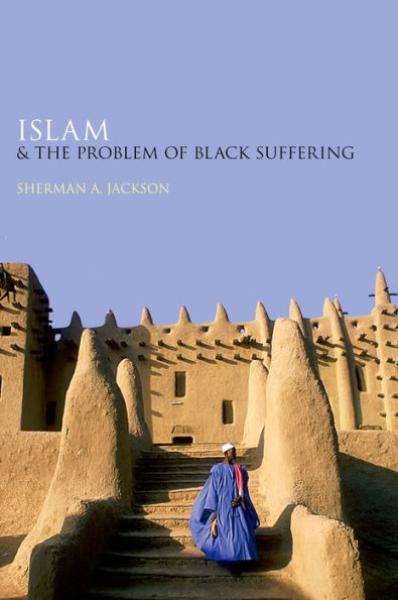Description
In his controversial 1973 book, Is God a White Racist?, William R. Jones sharply criticized black theologians for their agnostic approach to black suffering, noting that the doctrine of an ominibenevolent God poses very significant problems for a perennially oppressed community. He proposed a
"humanocentric theism" which denies God's sovereignty over human history and imputes autonomous agency to humans. By rendering humans alone responsible for moral evil, Jones's theology freed blacks to revolt against the evil of oppression without revolting against God. Sherman Jackson now places
Jones's argument in conversation with the classical schools of Islamic theology. The problem confronting the black community is not simply proving that God exists, says Jackson. The problem, rather, is establishing that God cares. No religious expression that fails to tackle the problem of black
suffering can hope to enjoy a durable tenure in the black community. For the Muslim, therefore, it is essential to find a Quranic/Islamic grounding for the protest-oriented agenda of black religion. That is the task Jackson undertakes in this pathbreaking work. Jackson's previous book, Islam and the
Blackamerican (OUP 2006) laid the groundwork for this ambitious project. Its sequel, Islam and the Problem of Black Suffering, solidifies Jackson's reputation as the foremost theologian of the black American Islamic movement.
"Jackson's work has added a thought-provoking response by Islamic studies and is long overdue in the debate of Black theodicy." --Black Diaspora Review
"It goes without saying that any theological discussion is bound to be academic, yet this is an excellent book and a fascinating read." --ARNet
"Jackson's book is a work of theology, and in this dimension it is a skillfully argued plea for Islam as a religion capable of meeting the challenge of black suffering as well as a clear explication of Islamic theodicy. It remarkably succeeds in both the academic register and as a sustained personal
plea." --The Azanian Sea
"Jackson is a welcome addition to the writings of American Islamic scholars, most of whom are non-idigenous Muslims; such thinkers are not qualified to write from an Islamic-centric perspective about the numourous social, political, and economical ills that plague Muslim African Americans."--Yusef
Sala, BEACON
"Islam and the Problem of Black Suffering warrants high praise for it's scholarship and deserves the attention of Islamic jurists, imams, religious scholars, and coverts."--Latif A. Tarik, Aerican Public University
"humanocentric theism" which denies God's sovereignty over human history and imputes autonomous agency to humans. By rendering humans alone responsible for moral evil, Jones's theology freed blacks to revolt against the evil of oppression without revolting against God. Sherman Jackson now places
Jones's argument in conversation with the classical schools of Islamic theology. The problem confronting the black community is not simply proving that God exists, says Jackson. The problem, rather, is establishing that God cares. No religious expression that fails to tackle the problem of black
suffering can hope to enjoy a durable tenure in the black community. For the Muslim, therefore, it is essential to find a Quranic/Islamic grounding for the protest-oriented agenda of black religion. That is the task Jackson undertakes in this pathbreaking work. Jackson's previous book, Islam and the
Blackamerican (OUP 2006) laid the groundwork for this ambitious project. Its sequel, Islam and the Problem of Black Suffering, solidifies Jackson's reputation as the foremost theologian of the black American Islamic movement.
"Jackson's work has added a thought-provoking response by Islamic studies and is long overdue in the debate of Black theodicy." --Black Diaspora Review
"It goes without saying that any theological discussion is bound to be academic, yet this is an excellent book and a fascinating read." --ARNet
"Jackson's book is a work of theology, and in this dimension it is a skillfully argued plea for Islam as a religion capable of meeting the challenge of black suffering as well as a clear explication of Islamic theodicy. It remarkably succeeds in both the academic register and as a sustained personal
plea." --The Azanian Sea
"Jackson is a welcome addition to the writings of American Islamic scholars, most of whom are non-idigenous Muslims; such thinkers are not qualified to write from an Islamic-centric perspective about the numourous social, political, and economical ills that plague Muslim African Americans."--Yusef
Sala, BEACON
"Islam and the Problem of Black Suffering warrants high praise for it's scholarship and deserves the attention of Islamic jurists, imams, religious scholars, and coverts."--Latif A. Tarik, Aerican Public University
Last updated on
Product Details
- Oxford University Press, Brand
- Mar 1, 2014 Pub Date:
- 0199368015 ISBN-10:
- 9780199368013 ISBN-13:
- 234 Pages
- 9.1 in * 6 in * 0.7 in Dimensions:
- 1 lb Weight:




